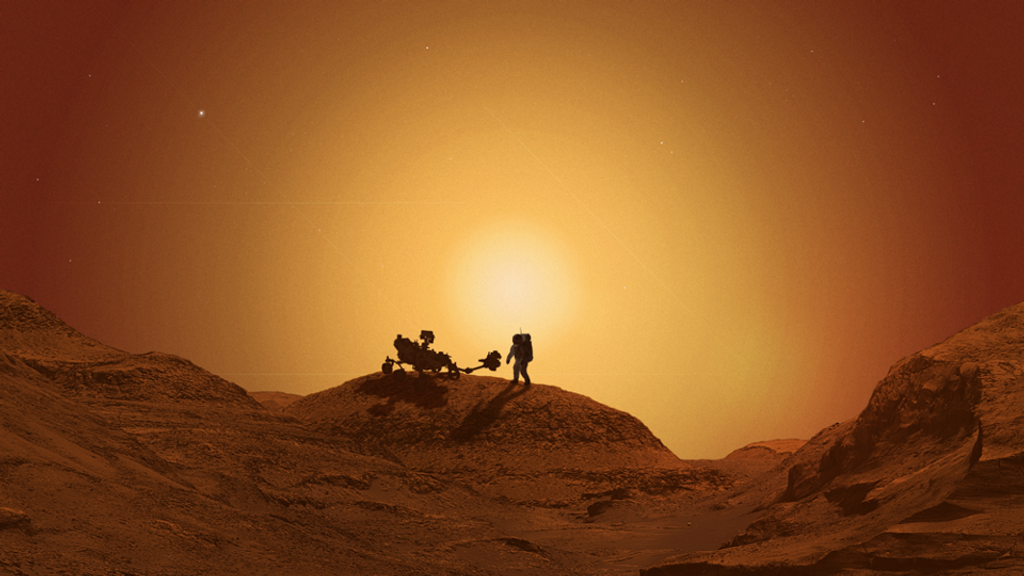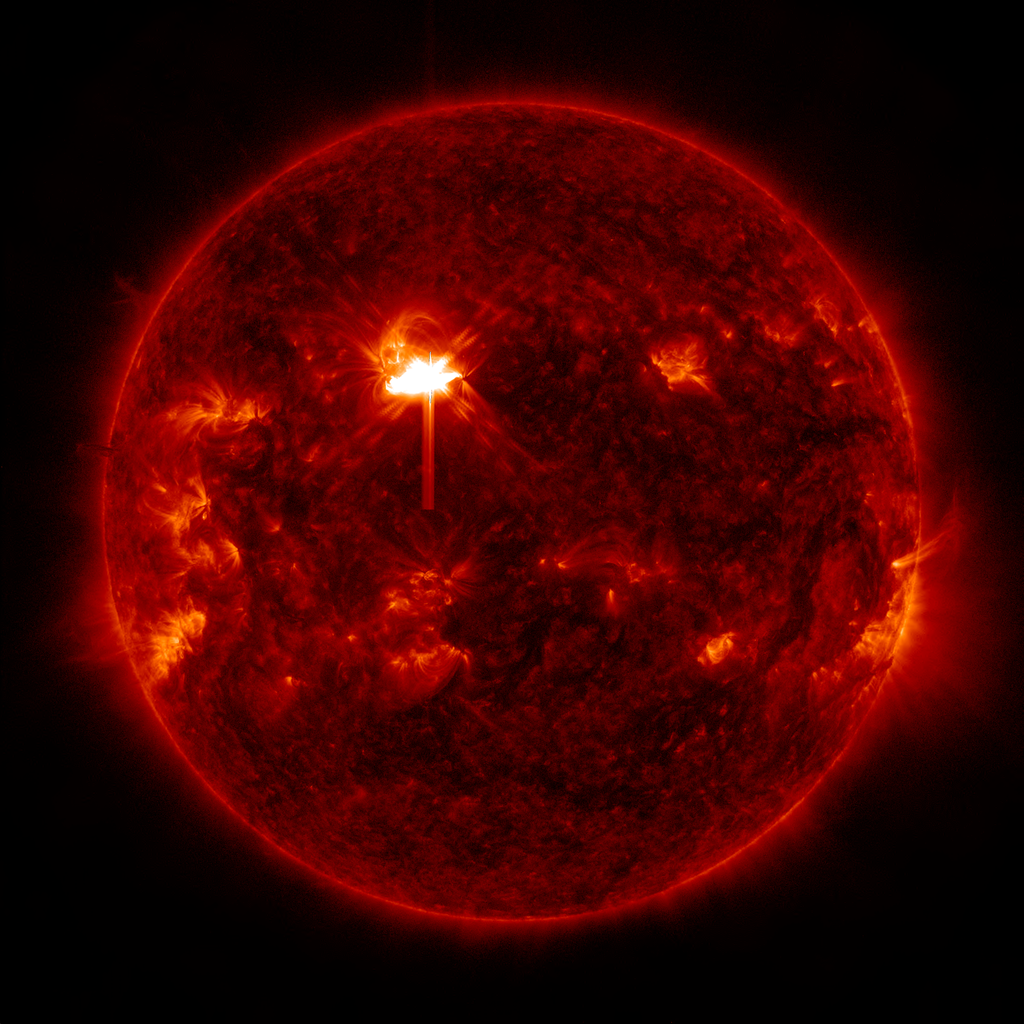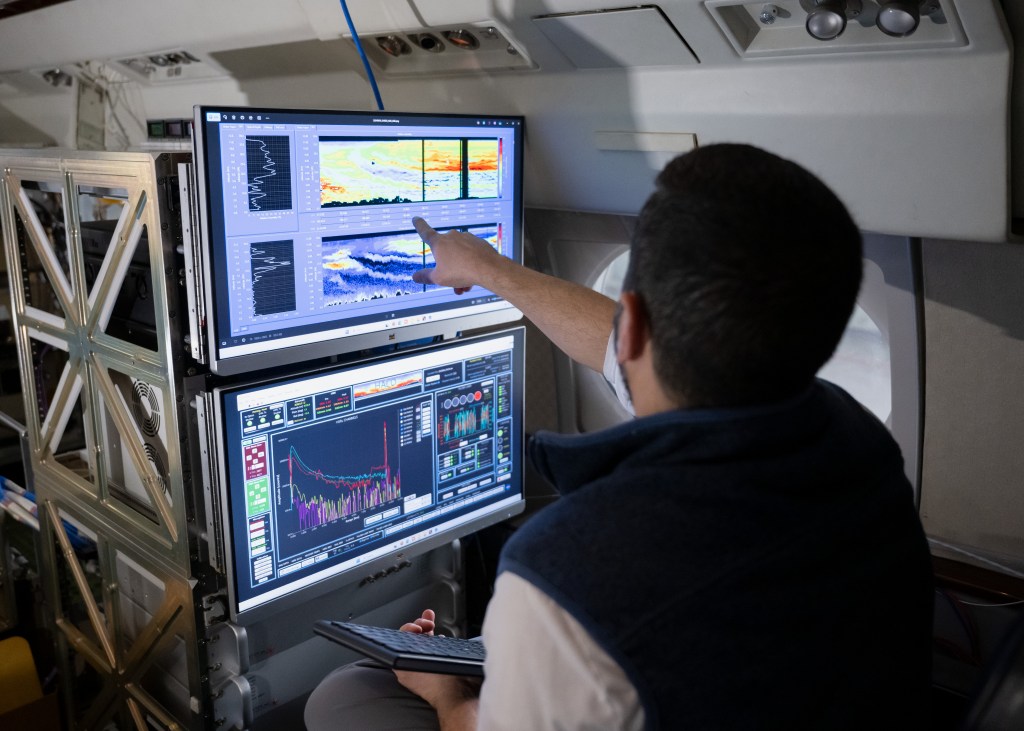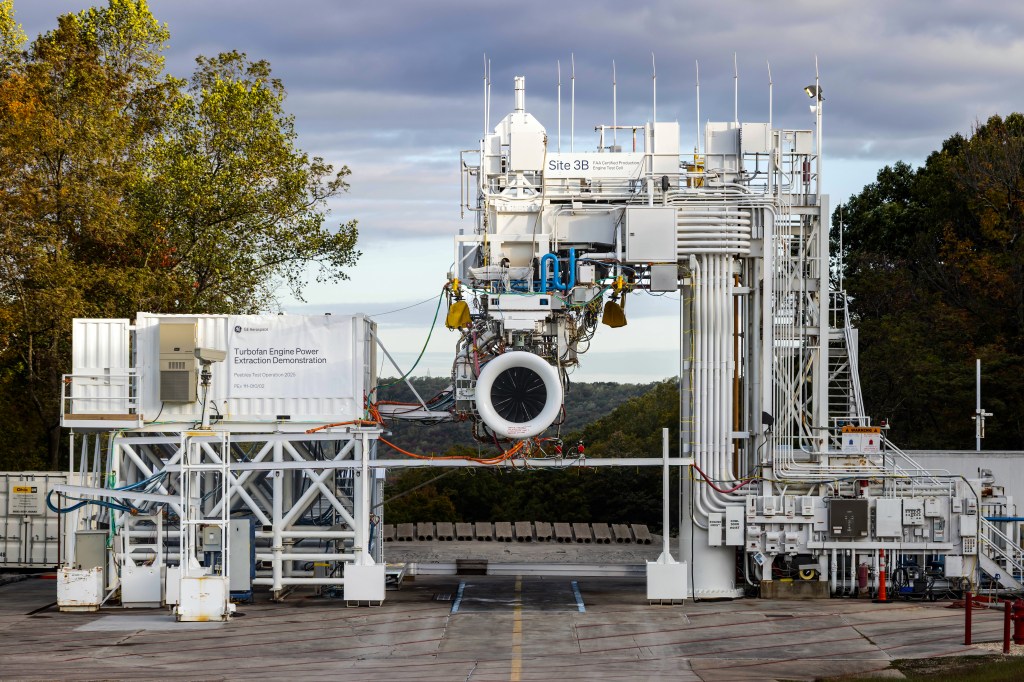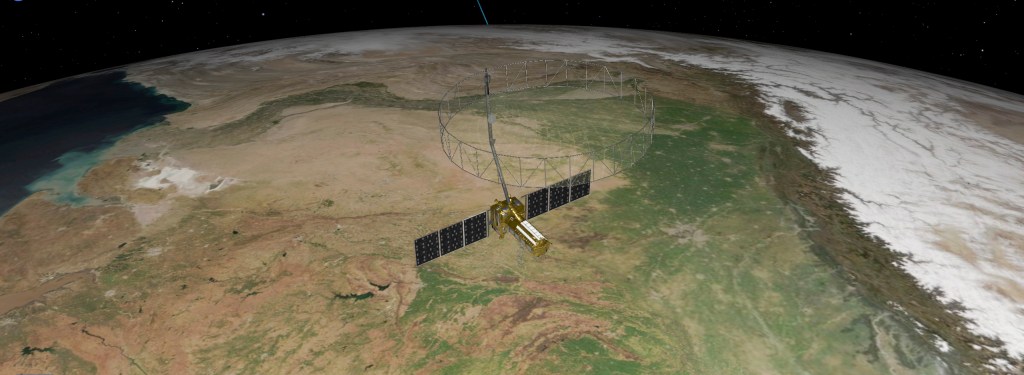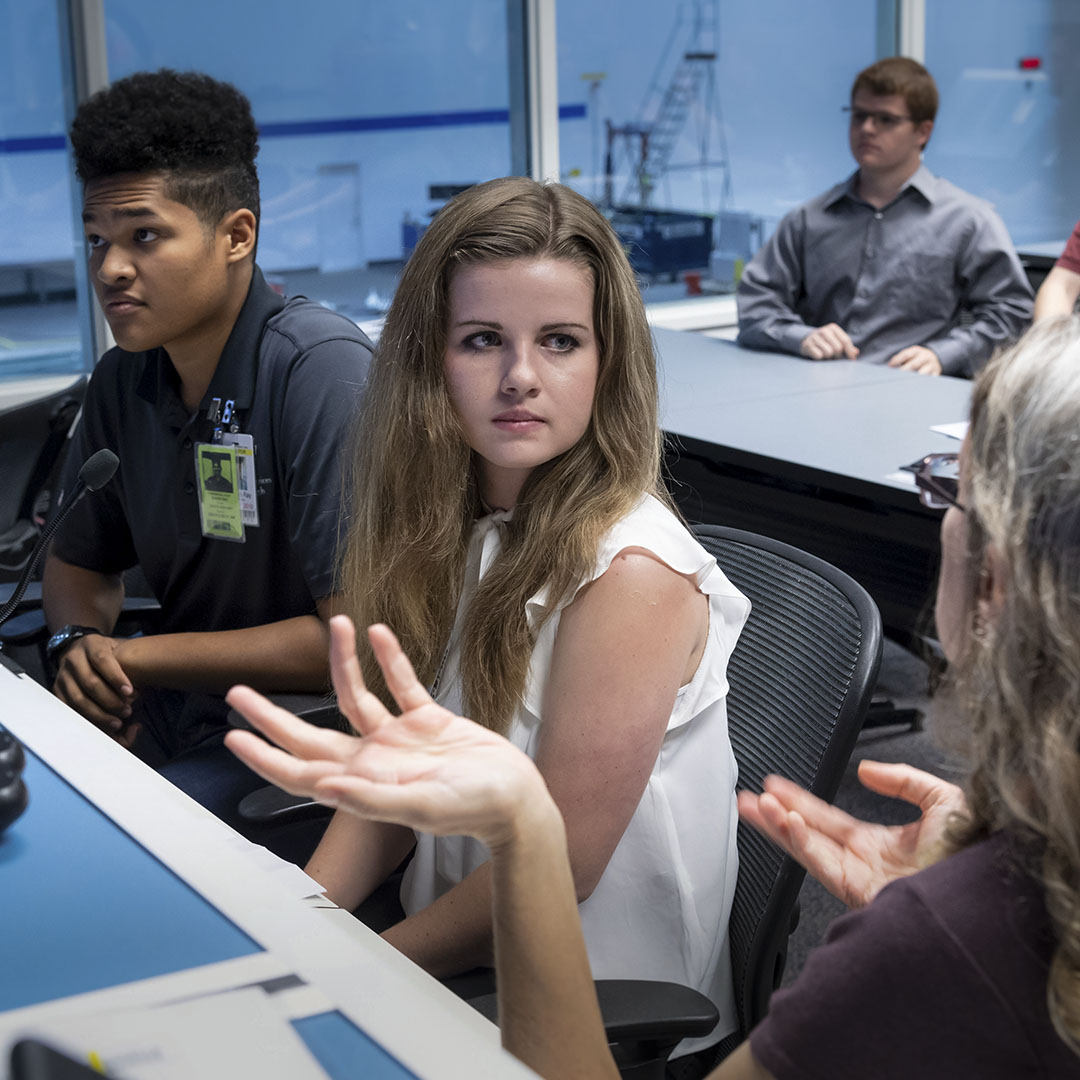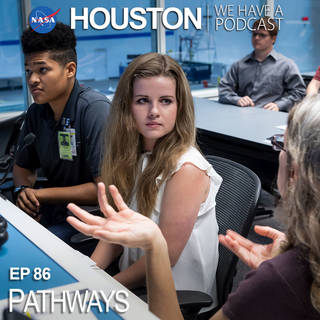
“Houston We Have a Podcast” is the official podcast of the NASA Johnson Space Center, the home of human spaceflight, stationed in Houston, Texas. We bring space right to you! On this podcast, you’ll learn from some of the brightest minds of America’s space agency as they discuss topics in engineering, science, technology and more. You’ll hear firsthand from astronauts what it’s like to launch atop a rocket, live in space and re-enter the Earth’s atmosphere. And you’ll listen in to the more human side of space as our guests tell stories of behind-the-scenes moments never heard before.
On Episode 86 Jonathan Abary, Pathways Program Manager, and Alexis Vance, Pathways intern in the crew and thermal systems division, discuss the Pathways internship program at NASA Johnson Space Center. This podcast was recorded on March 20th, 2019.
Check out the JSC Pathways site to learn more and apply for the program!
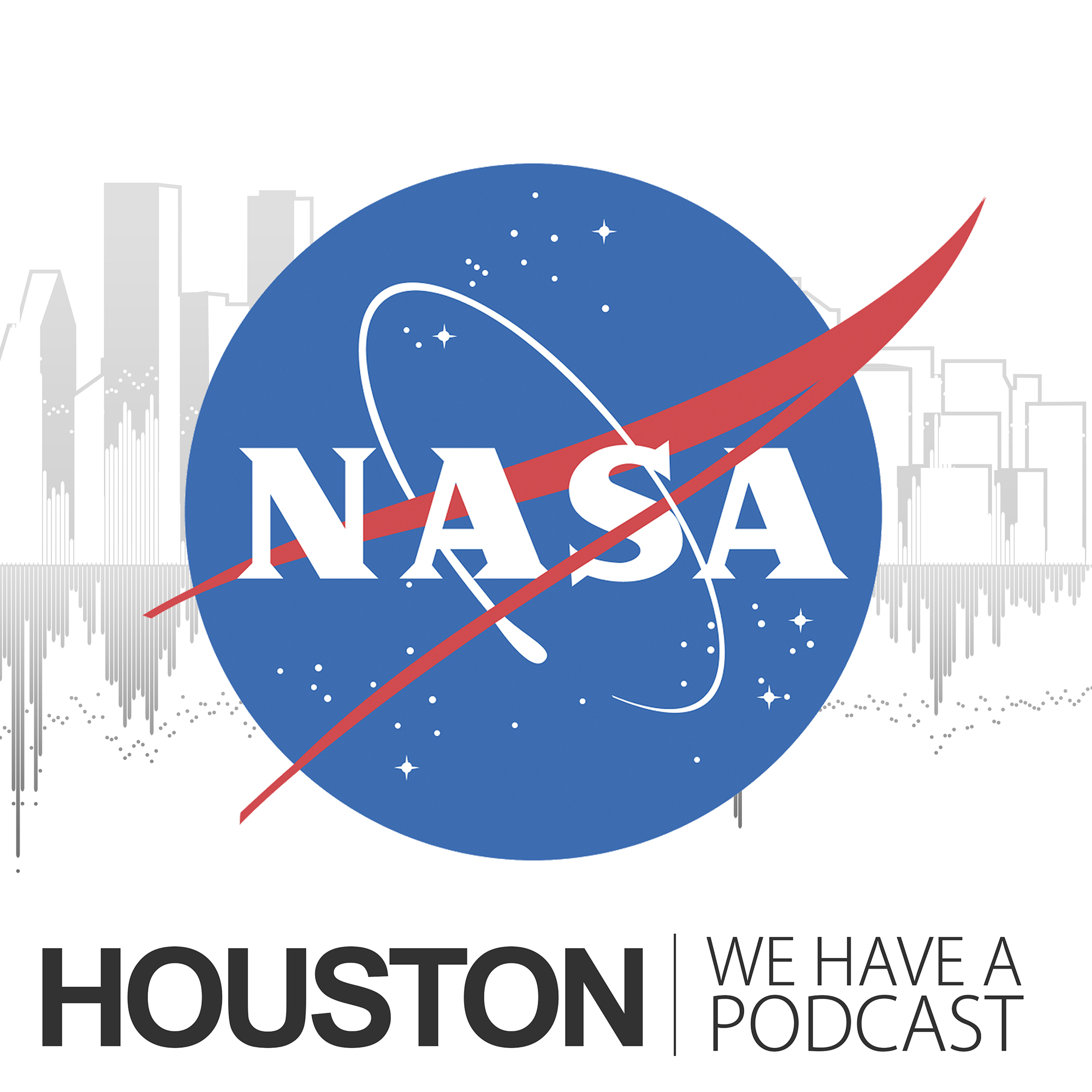
Transcript
Gary Jordan (Host): Houston, We Have a Podcast. Welcome to the official podcast of the NASA Johnson Space Center, Episode 86, Pathways. I’m Gary Jordan and I’ll be your host today. On this podcast we bring in the experts, NASA scientists, engineers, and astronauts, all to let you know the coolest information about what’s going on right here at NASA. But experts have to start somewhere. A lot of experts spent their whole careers here, coming in as students, landing the full-time offer, and learning side by side with veterans until they themselves become the experts. So, today we’re talking about a program near and dear to my heart, the Pathways internship program. Near and dear to me because I was once a Pathways intern. No expert, though I’m getting there. On a high level, this is a program where you are employed by NASA directly as a student. You spend a few semesters, maybe a few summers, or– at one or more centers across the U.S. and then, if you prove yourself, you’ll land a full-time gig with NASA. So, today we’re talking with Jonathan Abary and Alexis Vance. Jonathan runs the show as the program manager for the Pathways program. He himself was once a co-op, a Pathways intern, which used to be co-ops– we’ll get into that.
But Alexis Vance is currently an intern in the crew and thermal systems division. She has a pretty good perspective on what it’s like to be a student and a NASA intern now in 2019. So, with no further delay, let’s go right ahead to our talk with Mr. Jonathan Abary and Miss Alexis Vance. Enjoy.
[ Music ]
Host: Jonathan and Alexis, thank you so much for coming on the podcast today to talk about the Pathways internship, something very near and dear to my heart.
Jonathan Abary: Yeah, thanks for having us.
Alexis Vance: Happy to be here, Gary.
Host: All right. So, what’s nice about this episode is we were all or now currently are Pathways interns, you know, at some point in our lives. So, let’s start with just where we came from. You know, I think it’s important to sort of go back and say, you know, there are certain minimum requirements that you can have to get into the Pathways internship, but, you know, I think we all have sort of a unique story. Not everyone is the same. So, Jonathan, where did you come from?
Jonathan Abary: Sure, so my journey with NASA began actually whenever I was in high school. I went to a local high school in the Houston area and one of the opportunities that was available was like a high school internship with NASA where I– my senior year of high school, I went to school for the morning and then for four hours in the afternoon I actually came to JSC to support the mission out here and so it was a really great experience. After that, I actually ended up moving into the college version of that program and then from there applied to the Pathways internship program and was fortunately accepted for that and tried out a few different organizations during that stint and ultimately was given a full-time offer for employment upon graduation from my undergrad degree. So, it’s been a really, really cool– really cool road. The pipeline of the student programs has been really exceptional as well for me and that’s what’s been really kind of cool seeing that that is something that continues to this day with the outreach programs that NASA Johnson Space Center offers to the country really helps us in sourcing an applicant pool that builds a group that’s ready to do the mission that’s available for us here at JSC.
Host: That’s awesome. So, you were lucky enough to be local. Like you were– you grew up in Houston?
Jonathan Abary: Correct.
Host: Yeah. So, how did– you said you went to a high school program just within high school. How did you hear about it? Was it friends or just a pamphlet?
Jonathan Abary: It was actually through one of my teachers.
Host: Nice. OK. That seems to be– that seems to be a good way to get in. Alexis, you were the same way, right? You had a teacher actually recommend, like, oh, you should do this.
Alexis Vance: Yes. And actually a NASA employee themselves who knew about the program reached out to me and recommended that I apply for it.
Host: Yeah, like a– was it– you know, you just– this was a– not in school though, right? This was a program.
Alexis Vance: No, yes. This was– this was not through school, this was kind of an outside activity that I was participating in. So, my NASA journey didn’t actually start until I was in college and my freshman year I got involved in a lot of aerospace research at my school and ended up joining a design team for a NASA education project challenge called Micro-g NExT. And every year they put out these design challenges and ask college students to design tools for space walks. And I got involved with the competition team or I guess it’s a challenge team my freshman year and I lead the team my sophomore year and through that they asked me to apply for the program. We get to work with divers in the NBL and also a few other NASA engineers. That’s how I became familiar with it.
Host: Nice. So, what made you interested in aerospace up front? Just– was it planes, was it space?
Alexis Vance: So, studying chemical engineering, aerospace isn’t the traditional route. My older brother is an Air Force Academy graduate and has served in the Air Force and so that kind of piqued my interest at first, but really I’ve always kind of had a fascination with planes and more specifically with NASA and spaceflight.
Host: Yeah, it’s just an interesting thing overall but then you go into those challenges, right, and you get to really dive into the– not just studying the material and reading, it’s actually doing. It’s building stuff and testing it out. That’s always pretty cool.
Alexis Vance: Right. Yeah, I always love a good engineering challenge. And typically, when you take away gravity, everything gets a lot harder.
Host: Yes. Absolutely. We have ways to do that here too. They have really cool programs with– it’s kind of– I think it’s– what’s it called– air-bearing floor or something like that. They like pump air– it’s like a hockey table pretty much, an air hockey table, but they pump air through a floor and basically simulate microgravity in a two-D environment because you can’t really– it’s hard to do– simulate that sort of thing on Earth which is one G everywhere, but it’s pretty cool. Jonathan, you were– were you engineering as well or were you more business side?
Jonathan Abary: No, actually I was on the business side. So, I was going to University of Houston studying business administration. And so in that I actually rotated to more of our business focused organizations here on site as a Pathways intern. I started off in the procurement organization and then I moved over to working in the public affairs organization.
Host: That’s a good one.
Jonathan Abary: For a summer. Yeah, that was super fun. And then I also went to the office of our chief financial officer and then also human resources.
Host: OK. So, you– that was a very diverse sort of tour. So, that’s actually part of the co-op program, Pathways internship program, which we can get into, but this is– it’s not a one-time deal. You don’t just like go, check out one area, and then peace out. The Pathways internship is a rotational program. So, you go to NASA in one area, come back another semester or summer and you’re checking out multiple things. So, why did you want to do something so diverse? Why did you go to all of these different areas?
Jonathan Abary: You know, some of my mentors had mentioned to me that now is the time to kind of try out a lot of different things and really try to find your dream job. So, I was really fortunate that that’s how the program was designed and it gave me a chance to try out different organizations, experience different organizational cultures, different organizational processes, so that at the end of the day whenever I got close to graduation I was in a place where I could confidently accept a full-time position in a place where I knew that I was going to love.
Host: OK. That’s pretty important because, you know, you can probably make a good guess on where you want to be, but this is sort of a like a trial. You get to– you get to sample– it’s like going to an ice cream store, but for jobs, where you sample a little of–
Jonathan Abary: You could say that.
Alexis Vance: Yeah, I’d say that’s exactly right. Especially in engineering or flight ops. When you come in as an engineering student, there are so many opportunities in NASA that you don’t even know about. And by rotating, it really helps you find the best fit that you’re going to be happy with.
Host: Which tour are you on right now?
Alexis Vance: I’m on my first work tour.
Host: OK.
Alexis Vance: I’m in the engineering directorate. I work in crew and thermal systems and active thermal systems.
Host: What is that?
Alexis Vance: So, crew and thermal systems is the individuals who will design our space suits, they design spacewalk tools and they also do our kind of heat regulation within station and a lot of the other vehicles.
Host: So, is it mostly designing, is it mostly testing, is it mostly paperwork?
Alexis Vance: So, I really like my branch that I’m in right now because we do a lot of designing and testing.
Host: Nice.
Alexis Vance: Right now– yeah, the cool stuff. Right now I work on a flight project that we are hoping to fly on station in two years and so what we do right now is a lot of designing a test, doing the test setup and actually building our test stand, and then conducting it and figuring out what changes we need to make.
Host: So, that’s pretty fun from an intern perspective because you’re not– like when you think about an internship, you can kind of get unlucky and just get coffee or, you know, they don’t give you enough work or something, but it sounds like they’re just– they’re putting you into the mix of things. They’re giving you a good experience.
Alexis Vance: That’s exactly right. We have a lot of work to do, especially with sort of the new missions that have been announced with our goal of going to the moon and now using that to go onto Mars. There’s so much work to do that I don’t think they’d ever ask me to go get coffee. There’s a lot to be done and a lot of hands-on work and so I really like the fact that I get the opportunity to practice those skills, especially in school developing those technical skills, I didn’t have as much of an opportunity to do that, so I’ve had to do a lot of learning on the job here.
Jonathan Abary: And I will say what I hear from students in general is that that’s their number one biggest surprise whenever they join NASA is I didn’t realize I was going to be given so much responsibility. And we do have a lot of– a lot of really cool meaningful projects that students are assigned and I mean these are– these are projects that might be going up in flight. Right? But the really cool thing is, you know, with all that responsibility, we also have a large support network that are there for the students. So, each student is assigned a mentor and maybe a few mentors for various projects so that they can make sure that they are successful in the work that they’re given.
Host: Seems like this mentorship thing is a common theme here because it seems like just getting into the program for both of you, it was someone recommending the program to you. It was someone saying this is something you should do and you taking them as a mentor and their advice and saying yes, I’m going to pursue this. That seems to be a pretty important part, not only of just getting here, but then once you’re here to maintain those sort of relationships. Is there a mentor once you’re here?
Jonathan Abary: Yes. So, Alexis, you could probably talk about the mentors that you’ve had so far.
Host: Oh, you have a mentor?
Alexis Vance: I do. I have several. So, when we are assigned to our organization, we receive a mentor in the organization. Mine is higher up in branch management, so for each of the projects that I work on I also kind of have a mentor in those projects. Really anyone in the branch will be happy to take you on and teach you everything they know, so there’s kind of an unlimited supply of mentors, but having a couple has really helped me learn not only what we do at NASA but what we do in each of the organizations and what my career might look like long-term because they’ve had the experience. A lot of them have been previous members of the intern program or before when it was the co-op program, so they know what it’s like, they know what rotating is like, and they often have a lot of connections in other places in NASA.
Host: I find that a lot, especially the folks who have been through the program, turn into a full-time, they’re the ones that are most passionate about being– I know what it’s like to be that Pathways intern, I’m going to make sure that intern has the best experience possible. I can see that across the board. You said you’re in engineering. I’m sure, you know, that you’re not– you’re not here alone, right, there’s a decent-sized group here for this semester. How many students are here right now?
Jonathan Abary: Sure. So, this spring we have about 60 students that are coming from all across the country to work here for this spring semester. In the summer time, that number will double and, you know, we’ll get over 100 folks that are going to be here as Pathways interns. And then in the fall time frame it’ll go back to around 60.
Host: How are you guys– are you guys close, the 60 co-ops?
Alexis Vance: Yes. So, we had a bit of a unique experience that most co-ops don’t get in that at the start when we were supposed to start our term it was still furlough. So, we had about two weeks where we got to kind of bond. We got a lot of extra bonding time. One of– a couple of the interns, we went on a trip to one of the national parks in that time. So, we started out having that experience together, but yeah, I’m close to many of the interns. We all have committees that we serve on, both professional and social. And a couple of those, such as video committee, which I’m sure you’re familiar with, and we spend a lot of time outside of work working on those projects. There’s a really rich intern culture and a lot of traditions and history that kind of brings us together that we go through.
Host: That’s a big part of it, yeah. I mean you’re definitely integrated into the work. I can say that. Like I can definitely speak to that, just whenever I was here I was– I was part of– everything that my mentor was a part of, he’s like Gary, come along. You know? In every organization that I was a part of. And like you’re saying, I mean that– I’m actually kind of jealous that you had that much bonding time right up front where it was just like let’s, you know, all get together and do stuff together. That’s awesome and that’s one thing that’s great about intern culture is when you’re here, I mean I feel like it is a strong group. I forget how many was in my first class, I think about 50, but we like all hung out. It was fantastic.
Jonathan Abary: Well, and that’s how the program is designed is everybody starts on the same day with orientation and they kind of go through that as a cohort and so what you see from semester to semester is a group of students that are coming from all sorts of places down to Houston where they don’t have any homework. So, nights and weekends, I mean they’re doing road trips exploring in the Houston area, exploring, you know, Texas and just having a lot of fun together.
Host: I find that that actually– you end up building a strong relationship with Texas and with coming here, knowing that all your friends are going to be here, that you’re going to have a friend base– because a lot of– I mean when you’re talking about students coming in, it’s not all like you, Jonathan, where you were already in the Houston area and let’s just go, you know, down the street. I’m not exactly sure where in the Houston area you’re from, but I came from Pennsylvania, so I had to leave a lot behind. My road trip to get here was about 24 hours.
Alexis Vance: Oh, wow.
Host: It was– yeah. We made a thing out of it, but it was really fun. But I knew when I was coming here full-time, accepting the full-time position was that much easier because we had explored a lot of Houston, because I knew I was having a friend group here. I’m sure you’re kind of thinking the same thing, Alexis.
Alexis Vance: Right. When you first come here, especially if you’re not from Houston, you’re not familiar with Texas, it’s a lot of like– it’s a lot similar to your freshman year in college.
Host: Yeah.
Alexis Vance: That you don’t know anyone and you’re kind of scared. The Johnson Space Center is a big place and it can be overwhelming if you don’t have a group or friends to support you in that. But yeah, we’ve definitely bonded a lot. We do go on some road trips. There is a group of interns that drove to see the Crew Dragon launch a couple weeks ago.
Host: Nice.
Alexis Vance: Yeah, we’ve really become more of a close-knit community. It’s definitely made the transition to kind of moving and living in a new place a lot easier.
Host: Yeah, yeah. And I think that makes a pretty– again, not only just a bond, but a strong bond with coming here because I think– I mean I don’t know, Jonathan, if you know the statistics, but I know just personally anecdotally a lot of my friends were here for the long haul. You know? We’re here and we’re going to stay here because of the community.
Jonathan Abary: Yeah. That’s one of the really cool things about the program is that it’s our primary mechanism for full-time hiring, so permanent hiring. About 50% of our total center’s hiring comes from Pathways conversions to full-time. And our offer rate for the Pathways interns that are graduating each year are between 90-95% annually. And so it’s a really good statistic for us because the folks that are coming into the program, they are getting jobs upon graduation and they’re getting jobs in places that they’re going to want to stay in for years to come. You know, part of that is due to the fact that they’re bonding with each other. Another big piece is the fact that they’re kind of bonding with JSC in general. I mean so many opportunities for the students to kind of lift their heads up and see what is available across JSC. In addition to the rotations, we do have tours of different facilities that the students can go on. We have different lectures that the students can attend where they hear from current managers and astronauts and just NASA legends and those kinds of folks. And, Alexis, I think you’re actually working on that committee, correct?
Alexis Vance: Yes. Yeah, I’m on the tours and lectures committee. It’s one of our professional development committees that the interns have. So, I was able to schedule a couple tours. We’re going to do a tour of the ARES lab, which is where they process the moon rocks, and we also have a lot of great lecturers come in because a lot of the senior level staff and also several prominent figures at NASA were also once members of the intern program, so they really love giving back. I hope to reach out to Ginger Kerrick, I’ve talked to her before, as well as Gene Kranz, he’ll be coming to speak to us next week, so we’re all very excited.
Host: Oh, that’s very cool. Yeah, I’ve had Ginger Kerrick on the podcast before. She is– she is a wonderful person and I think I went to every one of her lectures when I was– when I was a student. I was here for three tours, like most– like most students, and I think I went every single year because she’s just a fascinating person. And, again, those people can inspire you, not just Ginger, but like everyone that gets up there. Everyone has a different story, a different unique perspective and it’s amazing. I think we also had Chris Kraft one year, which was absolutely fascinating. We had Gene Kranz as well.
I kind of wanted to back track a little bit because before we get into the nitty gritties of just what the Pathways internship is all about, you were talking about– you know, we’re talking about 50 students, you’re talking about a turnover of 95% of the students that come that are offered the full-time job take it and that’s huge. But I think a lot of that is because of the students themselves. It’s a very selective process, you only get a couple at a time, you know, a couple dozen, sure, but they’re already talented people. So, if you are looking for someone to say yes, I’m going to offer you a Pathways internship at NASA, what are you looking for in a student?
Jonathan Abary: That’s a really good question. And you’re right, it’s a highly competitive process. We have– we have announcements that are open twice a year and in those announcements we get thousands of applications that come through. You know, each cycle in the spring and the fall we’re whittling that down to about 45 students that we’re selecting. So, it definitely gets very competitive and I get that question a lot, you know, what are some of the things that set me apart from the rest of the candidate pool. And, you know, the answer probably isn’t as surprising as you might think. You know, here at NASA, we rely on every single employee to contribute as effectively as they can to make the mission happen and so, you know, teamwork is something that’s really important to us. We look for folks that can work well in teams. We look for folks that are well-rounded, have leadership capabilities. You know, we want folks that have the ability to set goals and achieve them.
As an intern, there’s also a really important piece in being willing to learn. I mean there’s a lot of stuff that you will be learning as an intern, so being able to kind of put yourself in a learning mode is really, really important. And you can do that in a lot of different ways. You know, we don’t just focus on technical excellence, which is also another big piece of what we need here, but we ensure that we have a well-rounded student altogether. So, getting experiences through extracurriculars, through other part-time jobs, through school projects, you know, class projects and things like that. That’s really what I see– where I see students shine and how they kind of sell themselves and the abilities that they possess and how they would make– how they would fit with NASA.
Host: OK. Yeah, always, you know, taking on– taking on new responsibilities, willing to learn new things and explore, kind of expand their knowledge. I definitely feel good about myself. Alexis, you have to feel good just based on that description right there because you got selected. So, tell me what you did before you, you know, came to NASA to sort of do exactly what Jonathan was saying.
Alexis Vance: Well, outside of the NASA program that I participated in, I was very active in the leadership in my university. I was involved in our student senate, student council in order to gain those nontechnical more interpersonal and communication skills, kind of helped me to learn teamwork. And technical-wise, I participated in several research programs. I’m a chemical engineering student, but I worked primarily in aerospace research. Got to work with several professors at the university, kind of to diversify my skills. So, I think the combination of those really helped and even before college I got a lot of presentational skills and interview skills through speech and debate back in my high school and that is one of the skills that you don’t know is going to be incredibly important to you as you go on, but the Pathways interview is scary, to be honest. And getting practice in that was very helpful and being able to communicate confidently are very important skills.
Host: Yeah, I remember taking the call for– or scheduling the call for the Pathways interview. I think it was a couple rounds, but I remember pacing around my apartment while I was on the phone. And, you know, I’ve been doing the same thing at the time was looking up different interview skills. And I remember, you know, I was talking– yes, I think it was you and– no, it might have been Bryan Grant, actually, who interviewed me. But– and was asking me a couple questions and I gave my answer and then I just heard silence. So, it’s like, OK, they want more. So, I kept talking and then I heard silence and I was like all right like I’ve got to keep talking. So, I just did that and then eventually they jumped in and said thank you very much, you know, if we’re– if you hear silence after your answer, we’re just writing some notes down. I’m like oh, thank God. I got– I exactly the– I know the feeling. Just I remember being so nervous, just like oh, that wasn’t good enough, I need to– I need to keep talking. I need to give them more examples, stuff like that.
Jonathan Abary: And what we try to do in the interview process is help your best to come out. We don’t want the nerves to affect who you really are as a person, right? And what I will say is that one of the things that will come out regardless is your passion for NASA. And that’s something that you can’t really fake. That’s something that’s really, really important to us because, you know, the destination might be, you know, the moon today, Mars in a few years, but who knows where we might go, you know, decades from now. And that passion for what we do is going to be really, really important as we continue to kind of unfold what the future of NASA looks like for years to come.
Host: It’s a fantastic mission. It’s one that I’m definitely passionate about getting behind. It’s, you know, traveling into space, that is awesome. Yes, I’m here, let’s do this. For the Pathways internship though, let’s kind of get into the nitty gritty. So, what’s it all about? You know, I guess we’ll start with it transitioned to the Pathways program– we’ve been kind of interchanging here just in this conversation between Pathways and co-op. I think it was in the middle of that transition when I came on. I think it was just like the very first year of Pathways in 2012. Right?
Jonathan Abary: Sure. So, this program dates back to the 60s where it was known as the co-op program, cooperative education program, and most recently in 2012, the president actually created the Pathways programs across all the federal government, so it kind of standardized the nomenclature Pathways intern. So, we transitioned from the word co-op to now Pathways intern. Those are synonymous, but you still hear the word co-op quite a bit because a lot of the folks that are full-time now actually came through that program as co-ops, so, you know, old habits die hard I guess. But, yeah, so the Pathways program, whenever it was created it actually covers three different programs. There’s the intern component, which is for students. There’s the recent graduate program which is for individuals who have graduated within the past two years, and there’s the presidential management fellows program, which is a program managed from our office of personnel management.
Host: OK. So, a lot of– a lot of different programs. OK. And then– yeah, I know there’s a– we work in our office, the external relations office, we have the internship program as well. That one was, yeah, that’s a little bit different, but we don’t have to get into that. We’ll just talk about Pathways right now. So, how about today, you know, what’s– what does the Pathways internship look like? Let’s say you’ve done your interview, they say yes, you’ve got a full-time job, now you’re coming on, you know, what’s– what are you in for?
Jonathan Abary: Yeah, so what we do is we place you for your first work tour with an organization that kind of aligns with your interests based on the interview. And after that, after that semester, you actually get to pick where you go for future work tours. So, again, kind of that process of finding your dream job. Undergraduate students work a minimum of three work tours, so three semesters and so that could be two long semesters like a spring or a fall and then one summer. And then on the business side, undergraduates are responsible for doing three work tours, they can do two summers instead of the two long semesters. Graduate students are also accepted into the program. They only have to work two work tours before graduation. But we have both technical and nontechnical folks. Our technical folks comprise about 75% of our total intern population and our business folks are about 25%.
Host: OK. And technical meaning– that’s your– that’s your STEM sort of majors? That’s your scientists, that’s your engineers, that’s– well, I guess you can go into more detail. What sorts of students– student degrees are you looking for?
Jonathan Abary: That’s a good question. So, primarily we look for aerospace engineering, aeronautical engineering, mechanical engineering, computer science, computer engineering, software engineering, but the list can go on and sometimes we do seek additional engineers as well. So, like Alexis, you’re a chemical engineering major. We seek those majors as well as material science, materials engineering. And really the basis for the degree requirements is made on the hiring capability that we have at the entry level for those kinds of positions. So, if your degree isn’t listed there, it doesn’t mean that we don’t do that type of work, it just means that at the entry level for this program we’re focusing in other areas. But I will say a lot of folks that do have the question, you know, my degree wasn’t listed on that announcement in USA Jobs. I tell them, hey, there are so many contractors out here that might possess the same type of degree that you do, you know, they also have internship programs as well that may allow you to come to JSC and work in supporting the mission in the same way that we do on the Pathways intern side.
Host: OK. So, there’s more opportunities just besides to Pathways internship if you want to work at NASA, but there’s the– Pathways has– you can look at these majors on you said USA Jobs?
Jonathan Abary: Yes. So, we use USA Jobs as our exclusive vehicle for accepting applications. What you can actually do now is go into usajobs.gov, you can set up your profile and then build your resume there. And you can actually set up an alert that will notify you when our positions open up. And what I will say is that our announcements do have cutoffs. So, because we receive thousands of applications, you know, throughout that process, we institute cutoffs so that once a certain number of applications have been received, that announcement actually closes as 10:59 Central Time, PM, that evening. And so what I tell students is, you know, in order to guarantee that your application will be received by the cutoff, apply that first day to make sure.
Host: Yeah. OK. So, yeah, it’s an online process and it’s– is it a few months that they’re open– that the opportunity is open for USA Jobs?
Jonathan Abary: Actually, it’s– we usually reach all of our cutoffs the very first day that the announcements open.
Host: Wow.
Jonathan Abary: So, you know, in one day we will get 2000 applications.
Host: OK.
Jonathan Abary: So, yeah, that’s why I think it’s really important to go ahead and be proactive in setting up the alert that will notify you whenever those positions become available, but I will give you a little bit of insider information. We typically– we typically have our postings open up in early February and early September every year.
Host: OK.
Alexis Vance: Yeah.
Host: Block those off on your calendar. When did you apply?
Alexis Vance: I went through the application process about a year ago, so last spring, and very much was Jonathan was talking about and applying on the first day is important. So, they’ll normally release the announcement that they say the application will be open in x number of days or it will open up then and once you see that announcement, you start putting together and building your resume and gathering your references and making sure everything about your application is correct so that when it does open all you have to do is push send and you’ve already applied. So, I went through that process last spring and then after learning about the Pathways program and getting into the Pathways program, I helped several of my friends apply at my university in the fall when they opened, knowing what the applications was process– knowing what the application process was like.
Host: Oh, nice. OK. Make friends.
Alexis Vance: Yeah, now I have a friend who joined me down here.
Host: Yeah, make friends who can help you out with the process.
Jonathan Abary: And I will say one word of advice also is to read those announcements in their entirety because each announcement is different. We typically have between, you know, four to six announcements that are opened up in the February time frame and then in the September time frame. Each announcement is going to have specific requirements. So, one announcement might be focused where a requirement is that you are pursuing an aerospace engineering degree. Another announcement might be that you’re pursuing a mechanical engineering degree. So, make sure that you’re applying to the announcement that matches your qualifications, either based on degree or the like. Another thing is because our program requires you to rotate for multiple work tours and you have to alternate between going to school full-time and working at JSC full-time, your graduation date has to be no later– or no earlier than one year from the closing date of the announcement and the reason for that is so that you can actually have enough time left in school to still be able to do those work tours that we– that we require in our program.
Host: OK. So, just– you have to think about your graduation year. I know I applied when I was a sophomore. I think my first semester of sophomore year. And then I was able to easily fit in three tours. I did the two summers like you were saying, but I did– I applied early. What year are you in now?
Alexis Vance: I am in my junior year. I applied my sophomore year and I am actually not going to be in school for kind of a whole year spot– space. I am working this semester, I am also working next semester, so that’s how I’m building my tours in.
Host: Yeah. I think that’s pretty standard, right? I delayed my graduation by a semester. I think you said a year, so yeah I think that’s pretty standard.
Jonathan Abary: Yeah.
Alexis Vance: It’s worth it.
Host: Oh, yeah, absolutely.
Jonathan Abary: And you only have to have 30 semester hours under your belt at the time of the application in order to be eligible for the position. One of the things that I will say is that if for some reason you aren’t selected the first time you apply, I have heard so many stories of people applying multiple times and then, you know, sometimes two, three times, sometimes more, and then, you know, maybe getting it after that.
Host: Yeah.
Jonathan Abary: So, if NASA really is where you want to be, you know, continue to apply.
Host: And keep doing the things like you were saying, right? So, we talked a little bit about going above and beyond what you had to do. You were in whatever– the student senate you said?
Alexis Vance: Yes, I was a senator.
Host: Oh, yeah, you were in all these different kinds of extracurricular stuff, which I think is super important, but Jonathan, bare minimum, what are you– what are you looking for to actually just– even to just pass the first round of yeah we’re going to look at this resume?
Jonathan Abary: Sure. So, bare minimum, the first thing is U.S. citizenship. The next thing is that you have to be a student. So, enrolled in an accredited educational institution. We’re looking for folks that are pursuing a bachelor’s degree or higher. Students have to be at least half-time enrolled at the time of application and maintain enrollment. The GPA requirement is a 2.9, so– and again this is just minimum requirements– and then there’s the graduation date of no earlier than one year from the closing date of the announcement. And then the requirements for degrees and those will vary based on the announcement that folks are applying to.
Host: OK. All right. So, that’s just– that’s just to get past the first round, but then you have to beat out the other 2000 applicants.
Jonathan Abary: And that’s really tough, especially whenever all you’re going based off of is a resume at that point. Right? So, one of the things that I will say is when it comes to the USA Jobs resume, it’s going to be a resume unlike the normal resume that you would probably expect to give at any other company. What we’re looking for is a resume that showcases your experiences. So, the USA Jobs resume allows you to write kind of a narrative about your story, you know, what kinds of experiences have you had in school, you know, in work, in extracurriculars, and that gives you a chance to kind of tell us about you in a creative way. And so that’s what we’re kind of looking for.
One of the things that I tell students is to utilize the car method, C-A-R. So, in each of your experiences, talk about the challenge, which is the C, talk about the challenge that was in front of you. Talk about the action, that’s the A, the action that you took in that situation. And then result is the R, so give the result, show me what your accomplishments were based on the actions that you took in that challenge. And that’s a really great way to kind of showcase your abilities through the resume. One other thing that I have seen folks do is use whatever fields are available in the resume system to their advantage. So, there’s one spot that says additional information. People have gotten so creative with that. Sometimes they list awards, sometimes they list other kinds of interests that, you know, that they’ve been a part of. And sometimes those things that I’ve seen in that additional information section really kind of pique my interest with, wow, this person might be kind of that well-rounded person that we’re looking for.
Host: Yeah. That’s awesome. So, that’s– not only to, you know, make an alarm and make sure you’re one of the first ones applying, but to take your time and put your heart and soul into that application, really write, you know, really try to make yourself unique. That’s really– that’s what it sounds like. Make yourself unique, make yourself look valuable, like when you come to NASA you will provide value to NASA. There’s a lot of– there’s a lot of stuff that you can put into this resume. That’s very interesting.
Alexis Vance: Yeah. The application format, especially putting in your resume, isn’t exactly what you think it would be. You don’t upload a document, you have to kind of manually put in everything and fill out all of the fields and I remember I was so nervous about standing out among all the qualified candidates. I think I maxed out the word limit on every single field. Made sure that I was getting as much information as possible in there.
Jonathan Abary: And that’s not a requirement–
Host: Jonathan’s like please don’t make me read all that. But that’s– as long as you put the ideas, you know, you don’t have to– you don’t have to go lengthy, but you just have to make sure that your personality, your heart and soul is reflected into it.
Jonathan Abary: Yeah. I mean there are some people that sometimes miss the mark by just putting a lot of fluff in their resume. We’re looking for just quality content. So, one of the things that I would recommend also– have a– have a career counselor, have one of your peers, maybe professors take a look at your resume and provide you with feedback on kind of what they’re seeing from what they’re reading.
Host: So, how are we getting the word out about go to USA Jobs and apply for the Pathways internship? What’s the recruiting process for Pathways?
Jonathan Abary: Sure. So, we use a lot of different avenues to try to reach as many folks as we can. Our employees are our biggest ambassadors here at JSC and so we utilize our employee networks to reach out to their networks so that we can cast a very wide net. In addition to that, we have employee resource groups that exist onsite here at the Johnson Space Center that have particular interest in various groups, you know, across the country with respect to recruiting and onboarding and so we definitely are working in partnership with them to ensure that we are reaching out to those targeted groups as well, you know, through their networks. But we try to do as much as we can to cast that wide net. Right now we have 150 students that come from over 80 different schools and about 76% of those students are from outside the state of Texas. And Texas is pretty big, right?
Host: Yeah.
Jonathan Abary: So, we are really proud of our really national reach. Students that have come from all the way north, you know, Alaska, and Puerto Rico and everywhere in-between. And so, you know, we’re really glad to be able to have the luxury of having the best and the brightest apply and go through the interview and selection process such that we are able to find people like Alexis who can kind of hit the ground running that first day and really contribute in a really positive way to the mission.
Host: That’s really important. I know, you know, during my class of 40, 50, whatever it was, I mean I was friends with folks from all over and it was really cool just to see the diversity of the applicants too. Not just location, but just– from all walks of life and it just made that experience just that much more meaningful. I think diversity is a pretty important thing for that because you get all the different perspectives. Not only the talent, not only the degrees, but you just get different perspectives that you bring here and it really just improves the overall culture.
Jonathan Abary: And that’s what’s really cool is that no matter what your interests are, you’ll probably find somebody that might have the same kind of interest or might be in the same phase of life or, you know, might have some kind of experience that you have had in the past as well. So, during orientation, we go around the room and just do a little intro, you know, name, university, fun fact, and that kind of thing. And, yeah, we have– we have so many fun facts for folks that have either been in the military or have–
Alexis Vance: A lot of pilots, too.
Jonathan Abary: A lot of pilots.
Host: Whoa, that’s cool. I didn’t know any pilots.
Jonathan Abary: A lot of skydivers. A lot of folks that play instruments. And, you know, there are so many other things that make each person unique but also connected. Then it’s really cool to kind of see how it all plays out for each cohort every semester.
Host: Yeah. Exactly. I’m sure you’re– like I know for me personally the friends that I made during the co-op program I am still friends with today and we hang out all the time. It’s a bond that kind of continues. You know, you find your best friends, but they’re from, again, all over and with all kinds of different interests, but you still find a way to connect.
Jonathan Abary: Well, and that’s one of the things about Johnson Space Center, I think, is that what makes us– what makes NASA one of the best– what makes NASA the best place to work in the federal government, you know, based on that survey that goes out every year, is the fact that we are doing life together as a community. We work together, but we also, you know, we’re spending time with each other after work. I am like you, Gary, in that I have seen my peer group of Pathways interns, you know, it’s been– it’s been, you know, 15 years since I was in the program, but my peers, we’ve gone through like marriages, we’ve gone through having kids, and, you know, just life things that have been really cool to do it with folks that you have been bonded with from, you know, a really, really early time in your life.
Host: Yeah.
Alexis Vance: It’s one of my favorite things about the program. We all come from, like you said, a variety of different places, but now that we’re all here, we’re all here because we want to support the mission and we wake up every day knowing that we have one of the best jobs in the world and hopefully we’ll get to all be here for the long run. And so, already making those bonds and connections and knowing that these are going to be our peers for a long time has been great.
Host: I think that’s a fantastic way to wrap this. Just to establish what an awful– I was going to say awful, oh my gosh– awesome community this is. It was– it is truly incredible, I’m very proud to be a part of it. I’m sure there is a lot more information that you can find about the program, all the nitty gritty details, you know, there’s– I wanted to ask so many questions about, you know, just when I was a co-op, you know, the questions like, you know, do I have to bring a car and where am I supposed to live. Where can we find some of these questions, Jonathan?
Jonathan Abary: Sure. So, the one thing that I will say is that we’ve been primarily talking about the Pathways intern program here at the Johnson Space Center. The Pathways program exists across NASA as an agency, so there are 10 NASA centers that have opportunities available for Pathways interns. Each center kind of does things a little bit differently, so I would– I would refer you to each center’s specific Pathways website for information. Johnson Space Center’s Pathways website is pathways.jsc.nasa.gov and that actually has a lot of information about kind of what we talked about. The tour schedule requirements, the program policies, the FAQs and the like. So, I would encourage those of you that are interested in learning more about the program to visit that website. Again, it’s pathways.jsc.nasa.gov.
Host: Perfect. And we’ll reiterate that at the end.
Alexis Vance: And in terms of housing and learning more about what you should do before you come if you’re accepted into the program, we have a committee that helps with housing the interns here and they have a website which is spacecityhousing.com and you can go on that and find a place to live once you’re accepted. In terms of cars and driving, I’m not from Texas, so driving in Houston at first– I come from Oklahoma state, a little town of Stillwater– can be a little bit scary. Especially when you can drive 10 hours and still be in Texas. Definitely bring a car, but if you have to carpool every day, a lot of the interns live together, so it’s doable. And we have, of course, the lovely bikes around JSC and a lot of people bike to work as well.
Host: That’s awesome. Yeah, get those– get those steps in. Well, I guess minutes in. Exercise minutes in. All right guys. That was a fantastic overview of Pathways. I was glad to have you both here because we’re all Pathways interns or at one point, you know, and even now seeing the perspective of 2019, just how competitive it is too, I mean you’re trying to beat out 2000 applicants, but it’s– that’s why we get some of the best of the best and that’s why it’s the best place to work. So, thank you for coming on and sharing these stories.
Jonathan Abary: Thank you so much.
Alexis Vance: Thank you.
[ Music ]
Host: Hey, thanks for sticking around. So, Jonathan Abary said it multiple times at the end, but one more time just in case you missed it. Go to pathways.jsc.nasa.gov to figure out all the information about what we talked about and some more about the Pathways internship program and how to apply. Otherwise, you can listen to some of our other episodes on Houston We have a Podcast. We have one where we talked about another education program called Microgravity University, you can check that one out. Otherwise we have a lot of other NASA podcasts on nasa.gov/podcasts. Follow the Johnson Space Center and all the cool stuff we’re doing here at– on Facebook, Instagram and Twitter. We also have a students page, NASA JSC Students, that’s on Facebook and on Twitter. This podcast was recorded on March 20th, 2019. Thanks to Alex Perryman, Norah Moran, and Pat Ryan. And thanks again to Mr. Jonathan Abary and Miss Alexis Vance for coming on the show. We’ll be back next week.











